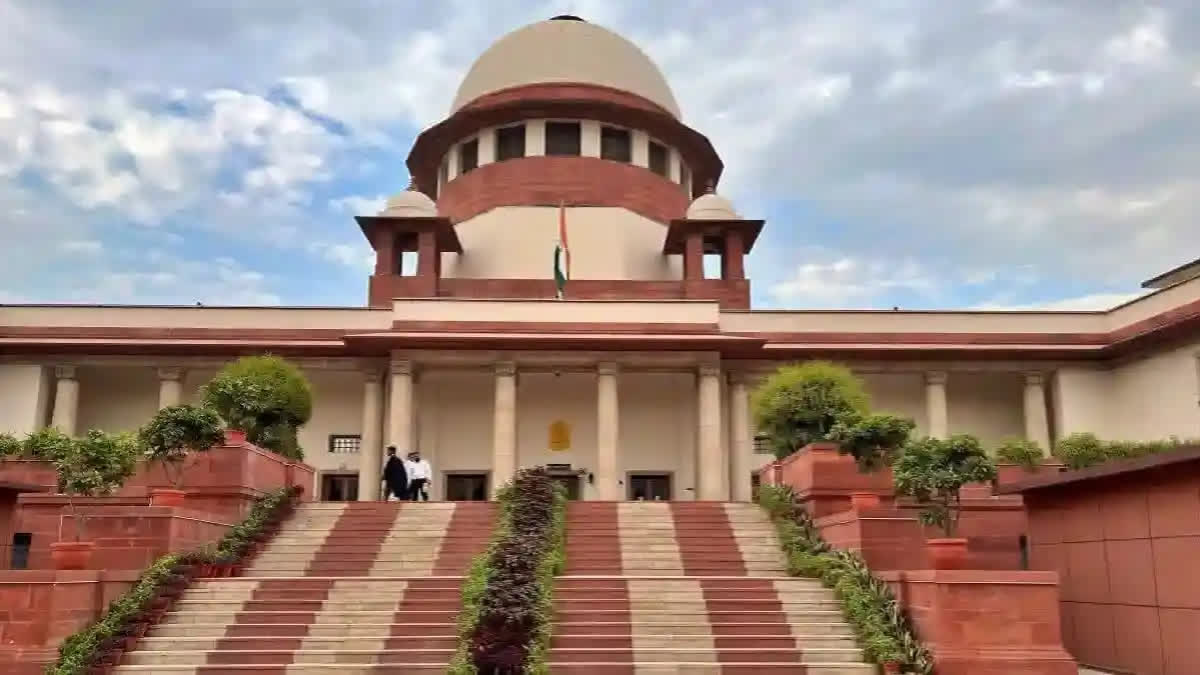New Delhi:The Supreme Court has suggested a mechanism where the investigation is carried out by the state corruption bureau and also by the Enforcement Directorate jointly under the supervision of a former DGP, or a former high court judge.
The apex court's suggestions came while it stayed further investigation against arrested Enforcement Directorate (ED) officer Ankit Tiwari by the Tamil Nadu police’s anti-corruption wing last month on the charges of bribery. It emphasized that to eliminate the apprehension of political vendetta, the authorities need to find some "transparent mechanism and then the investigation can commence".
A bench comprising Justices Surya Kant and K V Vishwanathan also sought a reply from the Tamil Nadu government on ED's petition for entrusting the probe to the CBI, adding urged the state government to explore the possibility of developing a mechanism for ensuring fair and independent probe in all cases of money laundering. The apex court has scheduled the matter for further hearing after two weeks.
During the hearing, Solicitor General Tushar Mehta, representing the ED, said that the FIR in the matter on the state government's website was blocked under the order of the competent authority. “Meanwhile, we are not mentioning in the order, please try to explore and tell us a mechanism for fair and transparent, and which must achieve the ultimate object of fair investigation so that no suspect goes scot-free," said Justice Kant.
Senior advocates Kapil Sibal and Amit Anand Tiwari, representing the Tamil Nadu government, insisted that this direction of the court should apply to all states. To which Justice Kant said, "Under our monitoring and supervision, let us start with Tamil Nadu", and added that the court can lay down a general law. Mehta asked why Tamil Nadu was insisting on it. “We have to first evolve a mechanism and then apply to all states, but let us see in your state (Tamil Nadu), how do you come out with….”, said Justice Kant.
Justice Viswanathan told Sibal, “You can suggest a mechanism or body, ultimately it (the investigation) has to go to that. Section 6 is a different provision in the Delhi Special Police Establishment. Somebody has to look into the inter-state ramifications and, at the same time keep the object of punishing the guilty, preventing vindictive arrest. Unless that is evolved, how will it arrive at this”.
Mehta said if there is a vindictive arrest by the Enforcement Directorate, there is a court to examine it. “Allegation and counter allegation cannot be allowed for those involved in corrupt practices...you can suggest a mechanism which can be applied on a pan-India basis, you can suggest a module for example, let the matter be investigated by state corruption bureau and also by ED by jointly under supervision of former DGP, maybe a former high court judge. Then the same mechanism can be applied for other states also, the persons will be changed (in Tamil Nadu we need a person who understands Tamil language for documents)," said justice Kant. Sibal said there are FIRs filed and the ED is not prosecuting.
“The moment we take cognizance, it is a statutory mandate that those who investigate the predicate offence will share the details with us. That is the system and they (Tamil Nadu) are not even sharing the FIR”, said Mehta.
